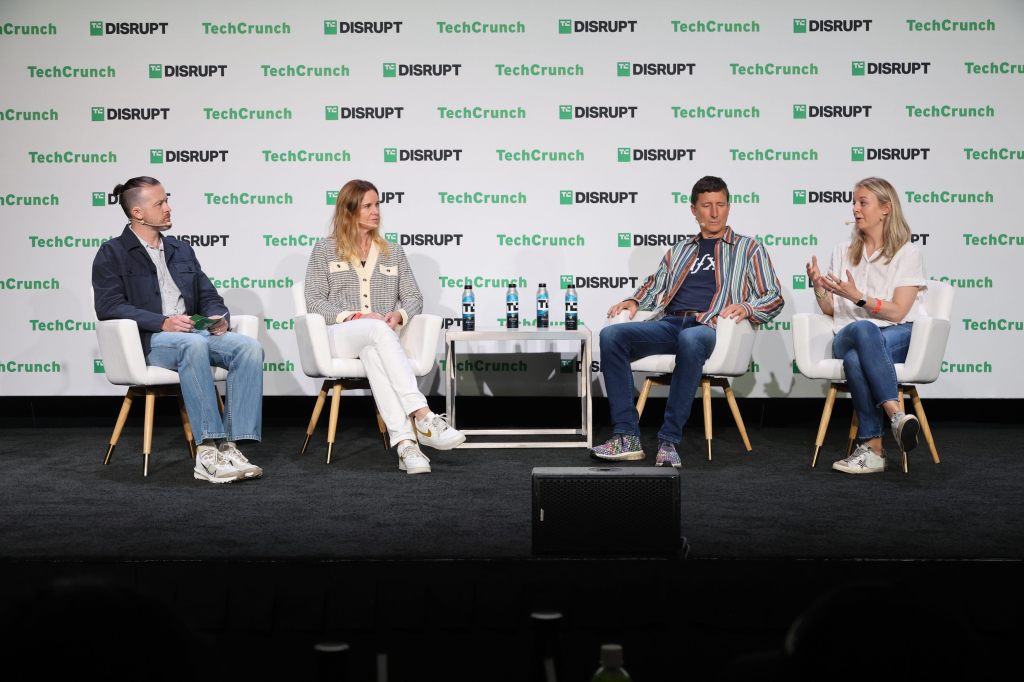If you’re an early-stage founder, the crazy days of 2021 are a distant memory. Money is tight, and the process of getting more is as unsettled as ever.
The past few tumultuous years have tossed out the milestones that defined previous Series A benchmarks. But that doesn’t mean the game is lost. At this year’s TechCrunch Disrupt, three investors shared their perspectives on what’s changed, what’s working today, and what advice they’re giving founders who are looking to raise a Series A.
“As companies mature to seed and Series A, a year and a half ago, if you were at a million or even approaching a million in revenue, a Series A would come together in a snap. That has changed really quickly,” Maren Bannon, co-founder and managing partner at January Ventures, told the audience. “Now it’s probably more like 2 [million] to 3 million in revenue where those rounds come together in a snap.”
For founders, the moving goalposts can be incredibly frustrating — especially since the reasons for it are beyond their control. After a remarkable 13-year bull run, uncertainty crept into the market last year, dampening investor appetite for risk. Rising interest rates compounded the problem.
As a result, Series A investors have pulled back dramatically. “What we’ve noticed in the statistics is that the Series A deployment is down 60% over the last year and a half. The amount deployed per Series A is down 25% from $10 million to $7.5 million. And the number of deals getting done is much fewer,” said James Currier, general partner at NFX.
“The bulk of seed stage companies were [successfully] raising off of story, not traction,” Loren Straub, general partner at Bowery Capital, said of market conditions two years ago. “I think there’s been a real shift in focus towards traction, momentum, legitimate product-market fit.”
“A lot of the Series A investors are understandably looking for a higher bar,” she added.
A market crowded with venture capitalists hasn’t helped, either, Currier said. Back in the ’90s, there were about 150 general partners in the U.S., he said. Today, there are more than 31,000 listed on Signal, a network of investors his firm runs.
“I call it the startup industrial complex because there’s so much media; there’s movies, there’s TV shows, there’s so many venture firms like our own publishing all the secrets. So all the secrets are now open. Which is great for everybody’s involvement in the system. But now the system’s gotten really big with so many VCs and so many startups,” he said.
The size of the venture capital sector means that it’s increasingly difficult to settle on one approach to a Series A. When that overlaps with a rocky market, the picture gets even murkier.
“It’s an unsettling time for founders because it feels like they were going for a goal, they hit the goal, and then everyone tells them that’s not enough,” Bannon said.
That doesn’t mean it’s all doom and gloom. Bannon said that her firm, which focuses on pre-seed companies, is seeing rounds get done quickly in AI and climate. Straub said she’s been seeing the same pattern with cybersecurity startups at her firm.
And don’t discount passion, tenacity and business sense, Currier said. “If you just build your business, they will flock to you.”
Advice for founders
Yet as most founders know, building a successful business is only part of the challenge when it comes time to fundraise. Even great businesses can fail to attract investors if they don’t meet the right ones or can’t find the right way to tell their story.
What’s a founder to do? “Don’t think of the fundraising as the time when you’re reaching out to VCs. Think of the fundraising as the 18 months before that,” Currier said.
“Spend lots and lots of time on the planning phase for the raise. It can make the raise a lot tighter and more efficient,” Bannon said.
Straub concurred, saying “that running a tight process when it comes to a Series A is the most efficient way to get it done in this market.”
Some of that homework involves finding the right investors.
“Number one, you want to find investors that know something about the sector you’re in because they’re going to give you better advice,” Currier said. “Number two is you want to find investors who have been founders because then they’re going to give you psychological advice. Because we all need that. When I was a CEO four times, I needed that a lot.”
To find those investors, Bannon recommended reaching out to investor references. “Go talk to founders in the portfolio and find out firsthand. I think that’s the best way to find a good fit,” she said.































Comment